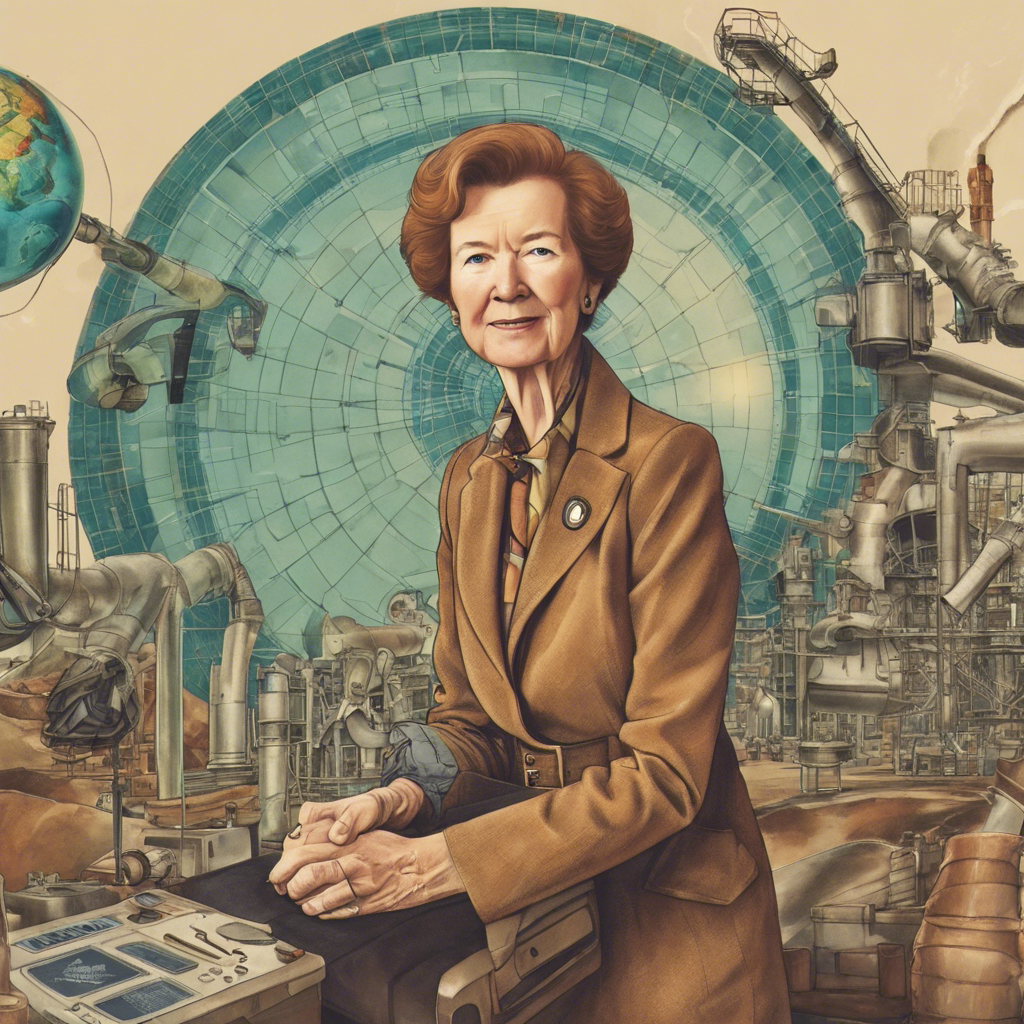‘The Science Compels: Phase Out Fossil Fuels’ – Mary Robinson Responds After Cop28 Row

Former UN climate change envoy, Mary Robinson, calls for collective action and emphasizes the need to phase out fossil fuels rapidly.
Mary Robinson, chair of the Elders and former president of the Republic of Ireland, has responded to the recent controversy surrounding the Cop28 president’s dismissive remarks about the need to phase out fossil fuels. In a diplomatic manner, Robinson emphasizes the importance of collective efforts and the scientific imperative to transition away from fossil fuels. The row has sparked further debate about the role of the fossil fuel industry in climate negotiations and the urgency of taking decisive action.
Controversial Remarks and Reactions
The controversy began when Sultan Al Jaber, the Cop28 president, responded to Robinson’s questions about the need for a fossil fuel phase-out by suggesting that such a move would be regressive. Al Jaber’s remarks were met with criticism from many scientists and climate advocates who argue that phasing out fossil fuels is essential to achieve the goals of the Paris Agreement. Mohamed Adow, director of Power Shift Africa, accused Al Jaber of greenwashing and aligning with the interests of the fossil fuel industry.
Calls for a Fossil Fuel Phase-Out
The focus of Cop28 has shifted to whether a fossil fuel phase-out date will be agreed upon. More than 100 countries are calling for a commitment to phasing out unabated fossil fuels. Former US vice president Al Gore stated that the world needs to phase out fossil fuels as quickly as possible. The controversy surrounding Al Jaber, who is also the CEO of the UAE’s state oil company, has raised concerns about potential conflicts of interest.
The Role of the Global Stocktake
The global stocktake, a comprehensive assessment of countries’ progress in meeting emissions reduction targets, is a crucial element of the Paris Agreement. It provides an opportunity to evaluate the effectiveness of current efforts and inform future actions. The latest draft of the negotiating text on the global stocktake shows some progress but also highlights the need for further decisions. The phase-out of fossil fuels remains a contentious issue, with language in the text still open to deletion.
Nature-Based Solutions and the Global Stocktake
Environment ministers from Germany and Colombia have called for the inclusion of nature-based solutions in the global stocktake outcome. Nature-based solutions, which utilize the power of nature to mitigate climate change while benefiting biodiversity and human well-being, are considered a cost-effective and underused option. The ministers argue that the global stocktake should recognize the importance of just and inclusive means of implementing nature-based solutions and address the finance gap in this area.
Conclusion:
The controversy surrounding the Cop28 president’s remarks highlights the ongoing debate over the role of fossil fuels in tackling climate change. Mary Robinson’s response emphasizes the need for collective action and the scientific imperative to phase out fossil fuels rapidly. The global stocktake and the inclusion of nature-based solutions in the negotiations add further complexity to the discussions. As the talks continue, the world watches to see if a fossil fuel phase-out date will be agreed upon, and whether Cop28 will be remembered as a turning point in the fight against climate change or as a summit overshadowed by conflicts of interest.










